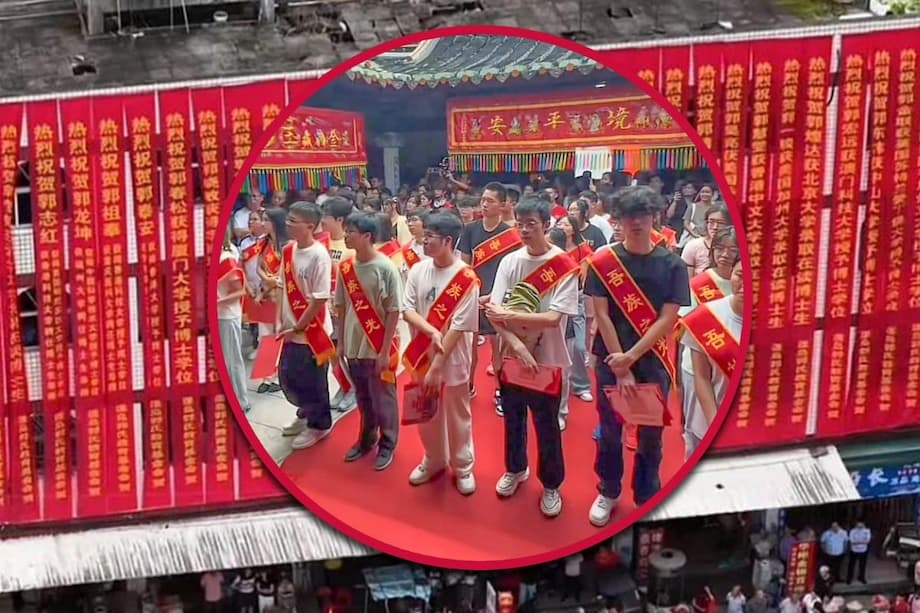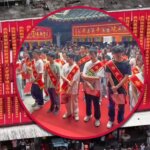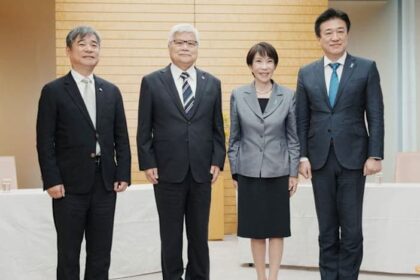Pengdao Village: A Beacon of Academic Achievement in Rural China
In the remote mountains of southeastern China, a small village has captured the nation’s imagination and inspired millions. Pengdao Village, nestled in Nanan City of Fujian province, has earned the nickname “PhD Village” after producing an astonishing 33 doctoral graduates from some of the world’s most prestigious universities. This remarkable feat stands as a testament to the power of education to transform lives and communities, even in the face of adversity.
- Pengdao Village: A Beacon of Academic Achievement in Rural China
- How Did a Remote Village Become a ‘PhD Village’?
- Inside the Scholarship Ceremony: Honoring Tradition and Achievement
- From Mountain Village to Global Campuses: Where Are Pengdao’s PhDs Now?
- Why Is Education So Highly Valued in Pengdao?
- Challenges and Sacrifices: The Cost of Academic Success
- What Makes Pengdao’s Approach Unique?
- Broader Implications: What Can Other Communities Learn from Pengdao?
- Voices from the Village: Pride and Hope for the Future
- In Summary
The story of Pengdao’s academic success recently went viral across Chinese social media, following a grand scholarship ceremony held at the village’s ancestral clan hall. The event, organized by the Guo Family Education Fund, celebrated the latest cohort of high-achieving students and honored the village’s deep-rooted commitment to learning.
How Did a Remote Village Become a ‘PhD Village’?
Pengdao’s journey from a poor, isolated hamlet to a symbol of academic excellence is as inspiring as it is unlikely. With a population of just 6,000 and limited arable land, the village historically struggled with poverty and few economic opportunities. For generations, residents faced the harsh realities of rural life in China, where education was often seen as a distant dream rather than a viable path to success.
Yet, Pengdao’s residents made a collective decision to invest in education as a means of escaping hardship. The Guo family, which makes up the majority of the village’s population, played a central role in this transformation. The establishment of the Guo Family Education Fund marked a turning point, providing financial support and encouragement to students pursuing higher education.
Guo Dongyu, director of the fund, explained the motivation behind these efforts:
“Our award is designed to inspire students to cherish our country and hometown, engage in charitable acts, and work diligently.”
This philosophy, passed down through generations, has created a culture where academic achievement is not only celebrated but expected.
Inside the Scholarship Ceremony: Honoring Tradition and Achievement
The annual scholarship ceremony in Pengdao is a vibrant blend of tradition and modern aspiration. Held at the local ancestral clan hall, the event is both a celebration of academic success and a tribute to the village’s forebears. Students who have excelled in their studies don red sashes inscribed with the Chinese characters wu zu zhi guang, meaning “the glory of our ancestral clan.”
During the ceremony, students offer incense and bow before memorial tablets honoring their ancestors, symbolizing respect for the past and hope for the future. This year’s event recognized one student admitted to Tsinghua University as a PhD candidate, 15 new master’s students, and 46 undergraduates preparing to enter university in September. In total, the education fund distributed 217,000 yuan (about US$30,000) in scholarships, with the highest individual award reaching 8,000 yuan.
To commemorate the achievements of Pengdao’s scholars, red scrolls bearing their names and alma maters are displayed on a prominent building in the village. These public honors serve as a constant reminder of what is possible through dedication and hard work.
From Mountain Village to Global Campuses: Where Are Pengdao’s PhDs Now?
The academic accomplishments of Pengdao’s residents are not limited to local universities. The village’s 33 PhD graduates have earned their degrees from some of the world’s most elite institutions, including:
- Tsinghua University (China’s top science and engineering university)
- Hong Kong University
- Cambridge University (United Kingdom)
- Cornell University (United States)
This global reach is especially impressive given the village’s humble origins. Many of these graduates have gone on to pursue careers in academia, research, and industry, contributing to fields ranging from engineering and medicine to economics and the humanities.
The presence of Pengdao alumni at such renowned universities underscores the village’s extraordinary commitment to education. It also highlights the increasing mobility and ambition of rural Chinese youth, who are now competing on the world stage.
Why Is Education So Highly Valued in Pengdao?
Pengdao’s reverence for education is deeply rooted in both necessity and tradition. Historically, the village’s lack of fertile land and economic resources left few options for advancement. Academic success became the primary means of improving one’s circumstances and bringing honor to the family and community.
Parents in Pengdao have long emphasized the importance of learning and discipline from an early age. The Guo Family Education Fund institutionalized this ethos, providing scholarships and recognition to encourage students to strive for excellence. The fund’s director, Guo Dongyu, noted that the awards are intended not only to reward achievement but also to instill values of patriotism, charity, and diligence.
“Parents have consistently stressed the importance of learning and discipline from an early age,” Guo Dongyu said. “This tradition of valuing education has been passed down for generations.”
Such a culture of academic aspiration is not unique to Pengdao, but the village’s collective success stands out even in a country that places a high premium on educational attainment.
Challenges and Sacrifices: The Cost of Academic Success
While Pengdao’s achievements are celebrated, they have not come without sacrifice. Many families have invested significant resources and made personal sacrifices to support their children’s education. In rural China, where incomes are often low and opportunities scarce, the pursuit of higher education can be a financial burden.
Despite these challenges, the village’s commitment to education has remained unwavering. The scholarship fund helps alleviate some of the financial pressure, but the true driving force is the collective belief in the transformative power of learning.
Pengdao’s story also reflects broader trends in Chinese society, where education is seen as the key to social mobility and national development. The intense competition for university places and the high value placed on academic credentials have shaped the aspirations of millions of families across the country.
What Makes Pengdao’s Approach Unique?
Several factors set Pengdao apart from other rural communities:
- Clan-Based Support: The Guo Family Education Fund is a unique model of collective investment in education, leveraging family ties to support the next generation.
- Public Recognition: The public display of scholars’ names and achievements fosters a sense of pride and healthy competition among students.
- Integration of Tradition and Modernity: The scholarship ceremony blends ancestral rituals with modern academic honors, reinforcing cultural identity while embracing progress.
- Long-Term Vision: The village’s focus on education is not a recent development but the result of decades of sustained effort and cultural reinforcement.
These elements have combined to create a virtuous cycle, where each generation builds on the successes of the last.
Broader Implications: What Can Other Communities Learn from Pengdao?
Pengdao’s story offers valuable lessons for communities around the world facing similar challenges. The village demonstrates that even in the absence of material wealth, a strong collective commitment to education can yield extraordinary results. Key takeaways include:
- Community Investment: Local scholarship funds and community support can make a significant difference in educational outcomes.
- Cultural Values: Reinforcing the importance of education through tradition and public recognition can motivate students to excel.
- Role Models: Celebrating the achievements of successful alumni inspires younger generations to aim higher.
- Resilience: Overcoming adversity requires not just resources, but also a shared vision and determination.
As China continues to urbanize and modernize, the example set by Pengdao may become increasingly relevant for rural communities seeking to bridge the gap with more developed regions.
Voices from the Village: Pride and Hope for the Future
The success of Pengdao’s students has brought pride not only to their families but to the entire village. The annual scholarship ceremony is a source of joy and inspiration, drawing attention from across China and beyond. Villagers hope that their story will encourage others to invest in education and believe in the potential of every child, regardless of background.
As one villager remarked during the ceremony:
“Seeing our children succeed gives us hope for the future. We are proud of what they have achieved and grateful for the support of our community.”
The red scrolls bearing the names of Pengdao’s scholars serve as both a record of achievement and a beacon for future generations. They remind everyone that with perseverance, support, and a shared commitment to learning, even the most remote village can reach the world’s highest academic heights.
In Summary
- Pengdao Village in Fujian province, China, has produced 33 PhD graduates from top global universities, earning the nickname “PhD Village.”
- The village’s success is rooted in a strong tradition of valuing education, supported by the Guo Family Education Fund.
- Annual scholarship ceremonies blend ancestral rituals with modern academic honors, inspiring students and honoring tradition.
- Despite economic challenges, Pengdao’s collective commitment to learning has transformed the community and set a powerful example for others.
- The village’s story highlights the transformative power of education and the importance of community support, tradition, and resilience.












